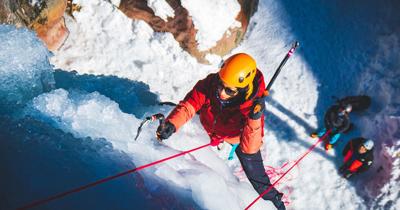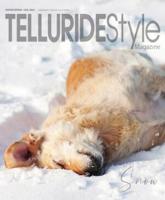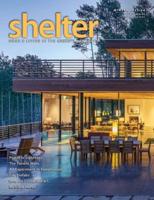It is very likely the first ice fest of its kind, anywhere.
It is certainly the first in Ouray.
There won’t be any competing.
It isn’t open to the general public.
Most important of all, it won’t be dominated by people like Peter O’Neil, executive director of the Ouray Ice Park, who dryly refers to himself as “an old white guy.”
Indeed, the point of the inaugural All In Ice Fest, which runs today (Friday) through Sunday in Ouray, is to bring marginalized climbers — Black, Indigenous and People of Color (BIPOC), the LGBTQIA2S community, adaptive climbers — together for a weekend of networking, instruction and inspiration. O’Neil wants to be clear: the fest is not his idea, and the Ouray Ice Park’s role is strictly supportive.
“I was up in the Ice Park a year ago with (program director) Elizabeth Sahagun and a couple of colleagues,” O’Neil recalled. “One I knew from my years as the director of the Colorado Outward Bound School — she’d handled our scholarship program for Black and Latinx students.”
Sahagun turned to O’Neil and wondered, what about hosting an event that offers underserved communities more access to ice climbing?”
“There’s a festival called Color the Crag,” O’Neil pointed out (which celebrates diversity in rock climbing). “There are groups like Brown Girls Climb, and Climbers of Color. Lots of communities of like-minded people who would like to spend more time, and be more comfortable, in the out-of-doors,” are being organized. But none concentrates on ice-climbing specifically.
“If you want to be an accomplished alpinist, you have to be able to climb on ice, not just rock,” O’Neil pointed out, “and be comfortable in winter conditions. We want to draw people of every color and persuasion here, and make it available and welcoming. I was privileged to be able to take an Outward Bound course at age 18. It changed my life.”
With that, the All In Ice Fest was all in: by day, it’s a collection of clinics for climbers who want to learn (or refine their skills), covering everything from ice climbing essentials and adaptive climbing essentials to mixed climbing, anchor building and avalanche awareness.
“All the clinics are being led by people of color,” O’Neil said. “A guide is a seen as a mentor…as someone you might aspire to be. It’s easier if that person is more like you.”
There’ll be opportunities to demo, and purchase, new clothing and gear (major sponsors include Scarpa, Petzl, Rab, The North Face and Asolo, as well as the Colorado Tourism Office and the Colorado Lottery).
By night, the Wright Opera House, “which is closed to the public right now,” O’Neil noted, is opening its doors to presentations entitled, variously, Going All In In the Outdoor Industry; a screening of the film “They/Them;” and a discussion with creatives on the topic of storytelling.
There’ll also be an evening with Phil Henderson, who will lead the first all-Black team on an expedition to the summit of Mt. Everest this spring. Henderson discussed the “lack of representation of Black people in mountaineering and high-level mountaineering” with NPR recently.
“There’s so few of us at this level that it’s our duty, in a sense,” he said, “to bring this to our communities, to our young people, and talk about the benefits of being outdoors and connecting with nature and having a healthy lifestyle throughout their lives.”
All events this weekend are being held in accordance with local health protocols. “Liz has required that everyone be vaccinated, boosted and recently tested” in order to attend, O’Neil said. “Masks are required indoors. She wants everyone to be super-safe.” No one could have predicted a year ago, when this event was barely in the planning stages, that the virus would rear its head yet again, “But this is what you learn in the mountains,” O’Neil said matter-of-factly. “You learn to deal with adversity, and then you take what you’ve learned back to the real world. I want everyone to have that opportunity. We’re excited this is finally coming to fruition: Ten years ago, when you looked around, you saw very few Black, Latino and Indigenous men and women in the out of doors. Those barriers,” he said, are starting to fall. “We believe ‘All In’ is a great idea, and we want to encourage more people to attend next year. If you’d like to help, then spread the word.”
To learn more, or to make a donation to help ensure the fest returns next year, visit AllInIceFest.com.































Commented
Sorry, there are no recent results for popular commented articles.